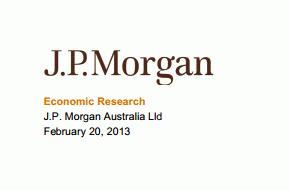
By Ben Jarman*
RBNZ Governor Wheeler today continued the run of relatively hawkish speeches he has made since taking the helm last year, again laying out the limitations of monetary policy in doing much about the economy’s major bug-bears of low potential growth and a strong currency.
The tone is nicely summed up near the end of the speech, with the remark that “Expectations of what central banks can deliver by way of exchange rates and output and unemployment remain excessively high”.
The Governor’s more specific remarks – the speech title was “Manufacturing decline not just a dollar story” - might well have met with a frosty reception at the NZ Manufacturers and Exporters Association, but the arguments are hard to refute.
On the global front, the obvious point, that the tide is going out globally on manufacturing sectors in higher income developed economies, was made at the outset, and the analysis from then on delved deeper into the conditions being faced by New Zealand firms specifically, and how little the RBNZ can do about them.
Not surprisingly, given the topic of the speech, there was a lot of discussion on the currency, and markets have (initially at least) taken seriously some of the remarks about possible currency intervention and the use of macro-prudential tools to cool housing.
Reading through the detail of his speech though, we don’t see much that is new or that should push the monetary policy debate in either direction.
On the currency front, it is very important to highlight that while the Governor stated “we believe the exchange rate is significantly over-valued”, his remarks refer to the real exchange rate, not the nominal exchange rate.
Recalling that the real exchange rate takes into account inflation differentials, it’s clear that the Governor is simply re-phrasing his favourite points about New Zealand’s poor growth/inflation tradeoff, but this time in reference to how this affects the economy’s overall competitiveness.
This drastically reduces the interest rate implications of his currency remarks: as Wheeler notes later on, the major factor behind the high real exchange rate is “our low level of savings”.
This means “higher interest rates than elsewhere are necessary to achieve similar inflation outcomes”.
Clearly a more dovish approach to the interest rate settings would do nothing to help, and would probably hinder the savings objective, and would likely push the real exchange rate even higher in the long run.
The often-mooted possibilities of cutting rates or implementing QE to pull NZD down are similarly dismissed on the grounds that they would only increase inflation, decrease credibility, and lift the real exchange rate.
Further, while Wheeler also noted that “the Reserve Bank would like to see a lower exchange rate”, and that he is “prepared to intervene to influence the Kiwi”, this is not news, and the bar for such actions is very high.
Wheeler ran through the criteria the Bank has had in the past in assessing the case for intervention, and concedes that given the magnitude of global capital flows, “we can only attempt to smooth the peaks”, and “we cannot determine the level”, which is of course why the Bank has operated with a soft touch approach in recent history.
On macro-prudential tools, the same remarks from the Governor’s speech earlier in the month were repeated, again with reference to the consultation process with the banks that will take place in March.
We have been skeptical that these measures can be made operational, and that the Bank would have enough conviction in their precision, for these tools to be used to cool the “overheating” housing market this year.
Moreover, the Governor’s repeated desire that such tools “support the stance of monetary policy” clearly show that macro-prudential tools, if used, are a complement rather than a substitute for rate hikes.
We expect the RBNZ to hike the OCR once this year, in the September quarter.
-------------------------------------------------------------------------------
Ben Jarman is an analyst at JPMorgan Australia and is based in Sydney.
1 Comments
What's more we don't need another central banker from a rounding error nation picking winners - if that's what the Governor wishes to do let him join the better equipped private sector to do so. The financial realms are awash with USD/EUR/JPY liquidity and players looking to sell and sell some more to a weak buyer.
We welcome your comments below. If you are not already registered, please register to comment
Remember we welcome robust, respectful and insightful debate. We don't welcome abusive or defamatory comments and will de-register those repeatedly making such comments. Our current comment policy is here.